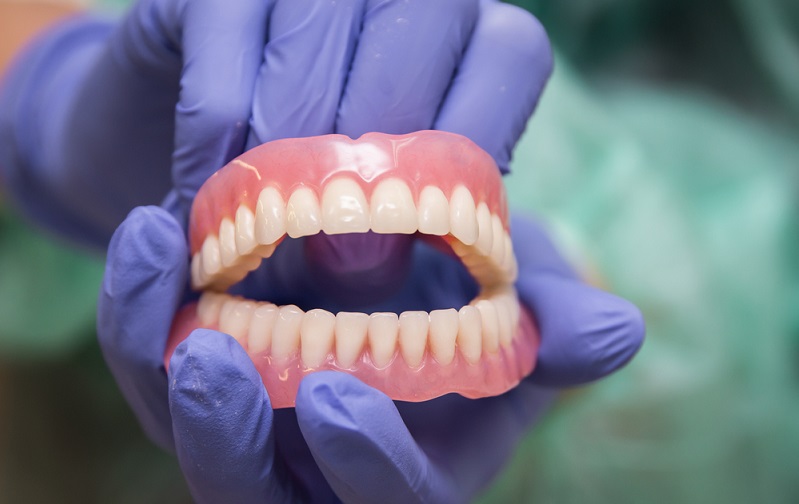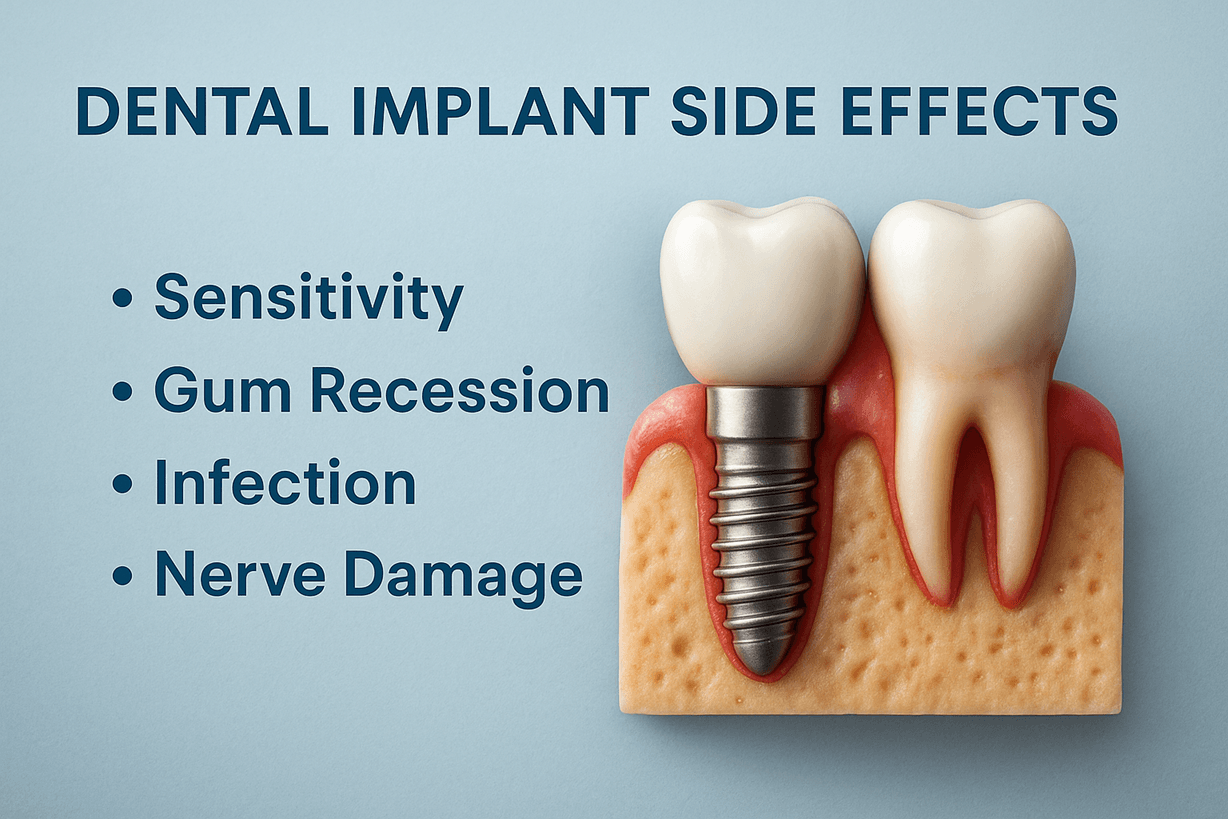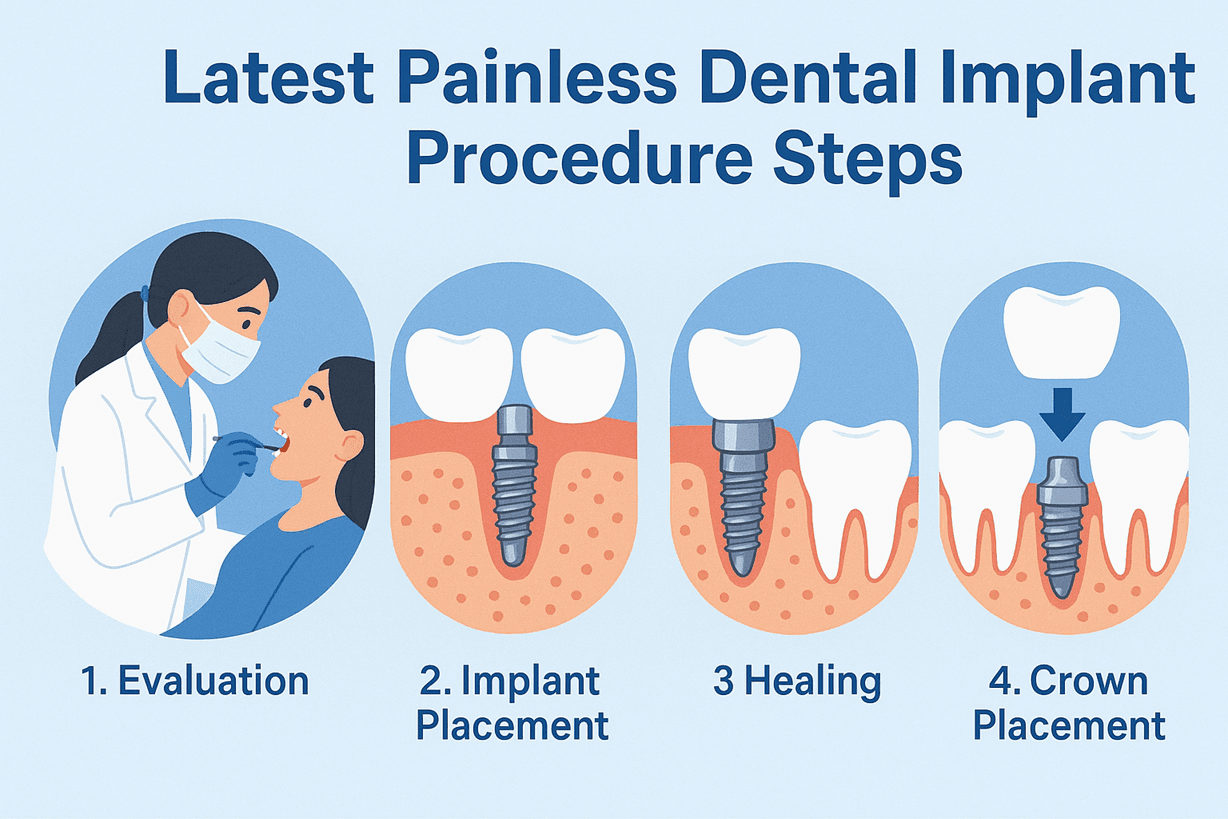Contents

What Are Dentures?
Dentures, often known as teeth dentures, are artificial, removable tooth replacements. They are custom-made in a dental laboratory based on your mouth impression and the colour of your teeth and gums to achieve a natural appearance.
Dentures not only make a missing tooth grin look better, but they also assist in keeping the mouth structure sound by supporting the structures around the cheeks and lips.
Dentures also allow you to eat meals that require chewing, which allows you to maintain your diet and ensure adequate nutrition.
When dentures are fitted, problematic teeth are pulled and replaced with a robust and appealing substitute. You may need whole or partial dentures depending on how many teeth need to be replaced.
How Are Dentures Made?
Dentures or permanent fake teeth can be made of a variety of dental materials, including acrylic, nylon, porcelain, resin, and metal. Denture frames are usually made of acrylic, nylon, or metal.
Furthermore, ceramics have an important part in the science of dental biomaterials.
Among all dental ceramics, zirconia is the material of choice in modern restorative dentistry and is widely utilized as a dental biomaterial.
Zirconia has been used as a structural material for dental bridges, crowns, inserts, and implants due to its biocompatibility, excellent fracture toughness, and radiopacity.
Types of Dentures
1. Full Dentures
Full dentures, also known as complete dentures, are removable devices that can be used to replace lost teeth. They are made up of both upper and lower sets.
Full denture teeth are made of porcelain or acrylic and are attached to a metal or acrylic base. When you lose all of your teeth, full dentures may be required. They can help fill out your appearance and make you feel more confident to smile.
Upper and lower dentures sit on the gum tissue, and suction keeps them in place. Denture glue can also help secure your dentures and prevent food particles from becoming trapped under the denture, which can cause discomfort.
Full dentures can be kept in good condition with regular care and maintenance.
2. Partial Dentures
Upper and/or lower partial dentures are intended to cover the space left by lost teeth.
Partials can be unclipped and removed as needed, giving you more confidence if you're missing a few teeth.
3. Temporary Dentures
Temporary dentures, often known as instant dentures, are dentures that can be placed immediately after your teeth have been extracted.
They are a temporary solution to help you get by while your new permanent dentures are being fitted. You may eat your favourite foods again without putting unnecessary strain on your natural teeth.
If you've previously had problems with sensitive teeth or gums, your dentist may recommend them to help ease your mouth into wearing dentures.
Temporary dentures allow your mouth to heal without requiring any substantial changes in your lifestyle by reducing the strain on your remaining natural teeth when eating. Your dentist will create replicas of your teeth and take measurements.
4. Flexible Dentures
Flexible dentures are a sort of partial denture, although they are made of different materials than regular partial dentures. In contrast to the thicker, more rigid acrylic used in full dentures, most flexible dentures are made of a thin thermoplastic such as nylon.
Flexible partial dentures may provide a more comfortable fit than other removable partials, especially if you're still getting used to wearing dentures.
Furthermore, most partial dentures are built with metal pieces that might sometimes be visible. Because flexible dentures do not contain any metal components, they appear and feel much more natural.
5. Fixed Dentures
Fixed dentures are more expensive than removable dentures, as are any surgically fixed dentures, such as implants, implant-supported dentures, and Snap-on dentures.
Cost of Dentures in India
Get the best denture fits for all of your needs, such as face appearance, speech clarity, and, of course, eating all of your favorite dishes.
The majority of them are more concerned with the cost of artificial teeth in India than with their quality. The cost of dentures in India ranges from ₹12000 to ₹85000, depending on the material chosen by the patient.
When it comes to replacing missing teeth or filling gaps, dentures are a cost-effective option. The cost of dentures is primarily determined by the type of denture desired and the type of crowns put on it.
Your dental specialist can best advise you on the sort of denture you require. It could be a: -
Full mouth dentures cost between ₹12,000 to ₹25,000 on average,
Implant-supported dentures cost between ₹5,000 to ₹85,000,
Removable partial dentures (clasp-based) start at ₹10,000.
Are Dentures Expensive?
The cost will vary based on whether you require a whole set of dentures (upper and lower), the type of dentures, and your oral ailments (for example, whether you require extractions or a replacement denture).
Partials are typically less expensive than dentures. Prices may also differ depending on the materials utilized.
We work with the best labs in the country (the same labs that certain Hollywood celebrities use), therefore our denture fees tend to reflect that higher level of quality. If you have dental insurance, some of the procedures should be covered.
Are Dentures Better Than Implants?
Individual circumstances and tastes determine whether dentures or dental implants are preferable:
Dentures: Dentures are a less expensive option that provides a quick treatment and is non-invasive. They are appropriate for those with a variety of oral health issues.
Dental implants are superior in terms of stability and functionality. They feel and act like natural teeth and, with proper care, can last a lifetime. They do, however, necessitate oral surgery and are often more expensive.
Dentures and implants should be chosen in conjunction with a dentist or oral surgeon, taking into account aspects such as your oral health, finances, and lifestyle. For best results, a mix of dentures and implants may be recommended in some circumstances.
Conclusion
Dentures are an excellent approach to restoring your smile and the functions of your teeth. That means your dentures will now serve as your replacement teeth.
Obviously, you want a long-lasting therapy that is performed in the most professional and skilled manner possible.
So, when it comes to denture types and costs, try not to go with the lowest option first. You must consider all factors. Consider your specific requirements as well as the long-term outcomes.
You should spend a little more money on a high-quality treatment that will last for many years and provide you with peace of mind.
Try to select a professional you trust, and remember that when it comes to dentures, the best option is always a prosthodontic specialist.
Check to see if your dentist is in-network or out-of-network. Remember that when it comes to restoring your teeth and smile, quality is everything.
Quality work and restoration will help you attain an overall better experience while avoiding additional costs and problems in the future.
FAQ's
Q1. Which dentures are the best?
The best dentures for you depend on your individual needs and preferences. Your oral health, money, lifestyle, and personal preferences will all play a role in determining the finest dentures for you.
It is critical to visit with a dentist who can assess your unique needs and assist you in selecting the best choice.
Q2. Are dentures safe?
When properly fitted and maintained, dentures are generally safe. Overall, dentures are a safe and effective approach to restoring your smile and dental function with proper maintenance and professional advice.
Q3. Can You Eat With Dentures?
Yes, you can eat while wearing dentures. Dentures are made to replace lost teeth and aid in chewing. However, there may be a period of adjustment when you initially obtain dentures while your mouth and muscles acclimatize to them.
It is best to start with soft meals and gradually reestablish a regular diet throughout this time. With practice, chewing with dentures can become more pleasant.
Q4. Are Dentures Comfortable?
Denture comfort varies from person to person. Some people find dentures to be comfortable and rapidly adapt to them, while others may have discomfort or uncomfortable places at first.
Q5. Are Dentures Painful?
When dentures are properly fitted, they should not be painful. However, you may suffer some discomfort or soreness during the initial adjustment phase while your mouth adjusts to the dentures.
This discomfort is usually only transient and is treatable with over-the-counter pain medicines, dental adjustments, and excellent oral hygiene.


